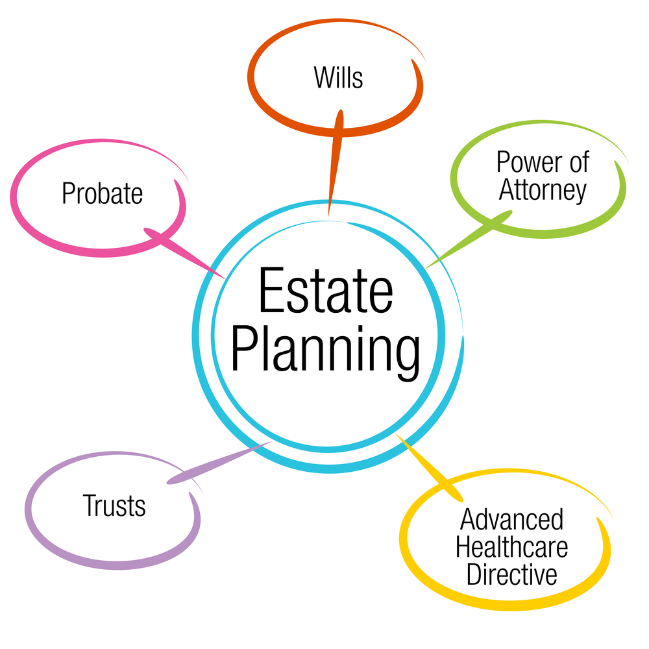- April 15, 2022
- Posted by: Deepak Jotwani, B.Comm, SME - Director - Wescan Insurance Brokers Inc.
- Category: Succession Planning


One of the most difficult decisions for parents is choosing a guardian for their children. Most of us do not like to think about our death, especially if we have young children who would be left behind.
Many parents don’t choose a guardian because they don’t want to think about the possibility of dying before their children are grown. Others put off the decision because they can’t agree on who the guardian should be. In doing so, they may be leaving open the possibility of costly custody battles and further trauma to their children.
It’s very important to ensure that you have planned adequately for an untimely death, especially when you have children. A few things you may consider while thinking to appoint a guardian/s for your children.

- Can they afford to take care of your children? Will they require regular payments of funds from any money left to the children from your estate?
- Do the guardians have the type of lifestyle that would allow them sufficient time to raise a child?
- Does the proposed guardian have the same philosophies regarding discipline, cultural & religious beliefs, academics, extra-curricular activities etc. For example, do you want your children to go to a private school? University? Take music lessons? Sports?
- Consider the age of the proposed guardian and their ability to raise children for a potentially long period of time. Some people shall default to their parents as the best choice for acting as guardians. However, your parents may not always be the best choice because they may not outlive you and even if they do, they may be elderly or unable to act. When choosing a guardian, be cognizant of the fact that it is a potentially lengthy responsibility.
- Does the proposed guardian live close by? Choosing someone in your local community may result in less disruption for your children, especially, if they continue in the same school and maintain friendships/ close to other family members.
- If you intend to nominate your brother or, sister, but should think about not nominating their spouse necessarily as what will happen if the couple separates or divorces? Who will be entitled to act as guardian in that instance? It is generally better to nominate one person only, in order to avoid these types of disputes.
- Ensure to nominate an alternate in the event that the person you have chosen to act as guardian is unable to fulfill the roles as originally planned.
- A guardianship document in a will is not binding on a court, and court may appoint someone else if they feel that your choice is inappropriate for some reason. For example – The person chosen by you has developed an addiction and is not fit to parent your children. Even though your advice Is not binding it carries a lot of weight in the court of law, so you should make your wishes known in your will.
- Be sure to speak with your family about your choice, so that they have an opportunity to ask any questions, and understand why you have chosen a particular person over other individuals. This discussion in advance may help to avoid a custody battle after the time of your death.
- When choosing a guardian, do not simply assume that the guardian should be the same person as the personal representative for your estate. It is often advisable to make the guardian and your personal representative different people, in order to prevent a conflict of interest between preserving the estate and caring for the children.

- If the child is under 18 or,19 (under the age of majority in their jurisdiction), the money may be held by provincial authorities if there is no will, or if no trustee for child’s inheritance is appointed in the will. Do not assume that surviving parents automatically have the right to manage their child’s estate.
- Many people assume that when they die, their spouse will inherit their estate, even if they do not have a will. However, in most jurisdictions, that is not the case once you have a child. Although, surviving spouse may be entitled to a “preferential share” of your estate, as well as a portion of the remainder, your child may also be entitled to a portion of your estate if you die without a will. Estate assets (such as investments, property & heirlooms) can rollover to a surviving spouse without triggering capital gains or losses. In the same manner, RRSPs or RRIFs generally can be transferred to the RRSPs or RRIFs of the surviving spouse without any tax consequences at the time of the death. However, the same is generally not true when the assets are transferred to a child, the children become entitled to a portion of the estate, then the tax may be owing on some of the assets at the time of death of the first parent potentially necessitating the sale or liquidation of some of the assets or registered investments sooner than if everything had been left to the surviving spouse.
- Once the children reach the age of majority, they will be entitled to spend the money however they see fit. Although, the surviving spouse may prefer to keep the money invested in order to fund his or her child’s education or the surviving parent’s retirement, the child may prefer to spend on luxury items like car, vacations etc. If the parent died without a will, or did not put sufficient controls in the will, there will be nothing to stop the child (new adult) from spending the money however they please to do so once they attain the age of majority. If the parents had assumed the surviving spouse would inherit all of the assets it will come as an unpleasant surprise to find out that your children are entitled to a portion of the estate, especially when the surviving spouse requires all of the estate assets to maintain the family’s standard of living. It may result in unnecessary stress for the surviving spouse if the funds inherited by the child must be held in trust by provincial authorities until the child reaches the age of majority.
- If a person dies and has no children, but does have a spouse or adult interdependent partner, all of the estate goes to the spouse or adult interdependent partner.
- If a person dies and has children with their spouse or adult interdependent partner, all of the estate goes to the spouse or adult interdependent partner.
- If a person dies, has children, and a spouse or adult interdependent partner, but the children are not the children of the spouse or adult interdependent partner, the surviving spouse, or adult interdependent partner, can elect to receive a preferential share in an amount according to the regulations, or 50% of the estate (whichever is greater) and the children receive the other 50% depending on the value of the estate.
- If a person dies and has children, but has no surviving spouse or adult interdependent partner, the estate will be distributed to each child equally. If the children of the intestate have predeceased the intestate, but had children of their own, the predeceased child’s portion of the estate will be distributed among their children equally.
- If a person dies, has no children and no surviving spouse or adult interdependent partner, the estate is distributed equally among the parents of the intestate, or to the sole parent if there is only one surviving parent.
- If a person dies, has no children, no surviving spouse or adult interdependent partner, and no surviving parents, their estate will be distributed to the intestate’s siblings.
- If a person dies, has no children, no surviving spouse or adult interdependent partner, no surviving parents, and no siblings, half of the estate goes to the paternal grandparents or their descendants (the intestates aunts and uncles), and half of the estate goes to the maternal grandparents or their descendants. If there are only surviving relatives on either of the paternal or maternal grandparents, the whole of the estate will go to that side and distributed amongst their descendants.

- Plan for rare scenario – What would happen in the event of a common disaster?
- Beneficiary/s Competency – If you are single, separated, divorced or widowed, your will may provide that your children are your primary beneficiaries- would your children be capable of managing your estate if you were to die tomorrow?
- Structure Trust & Appointing Personal Representative – In case, the money is left to the child directly the provincial authorities may have the right to manage that money until the child gains the age of majority, depending on the jurisdiction. This may not be a cost-effective strategy as the public trustee will charge a fee in order to manage your estate and they may not manage the funds in the manner you would like. Also, once your child attains the age of majority, he or she will be entitled for the funds in one lump sum. How do you feel about an 18 or, 19year old managing hundreds of thousands of dollars or, worse even millions of dollars it may not be a right strategy? Most parents do not want their 18 or 19year old children to receive inheritance at this age. It is generally recommended by the estate professionals that the parents with young children should provide the inheritance for their children held in a trust until them attaining the age of majority. “Trusts” established for children are managed by the deceased’s personal representative. The personal representative is given the power to encroach upon the capital of the trust for the benefit of the children. You should discuss with your personal representative about the types of expenditures which you would like them to authorize like private school, travel, music or sport lessons etc.
- Trust Provisions past Age of Majority – One of the important decisions in estate planning is to determine on what happens when the children attain the age of majority – 18 or, 19 years depending on the jurisdiction? Young adults may be prone to impulse buying or, may have a creditor exposure etc. Many parents may have provision in the trust past the age of 18 or, 19; one of the strategies deployed by some of the parents is to provide an annual income from the trust for their children on attaining the age of majority. The capital of the trust is paid in stages for example 20% of the capital at Age 21, next 20% at Age 23 and by Age 29 the entire estate capital has been paid out. You have to also think about how long you would like the trust to be active.
- Plan Registered Fund tax liabilities – There are tax advantages to naming a minor child as a beneficiary of an RRSP, since the RRSP proceeds are not taxable immediately at the time of death. We have to remember that tax deferral is not in perpetuity and at the time of death, a registered annuity must be purchased which pays out prior to the child’s 18th birthday, though there are exceptions in case of child being disabled. This implies that the child shall be entitled to large sum of money when he / she is very young. Alternatively, it may be better to plan for the tax liability by buying a Term life insurance policy and have the RRSP payable to the estate, so that the funds are deregistered at the time of death, but the after-tax proceeds will be held in trust until the desired time. If you are saving a little bit of money in taxes and your child spends the money imprudently as soon as they receive it. It will not achieve the overall goal of implementing an effective estate plan.
Please consult an Estate Professional or, Estate Attorney for a customized Estate Plan.

